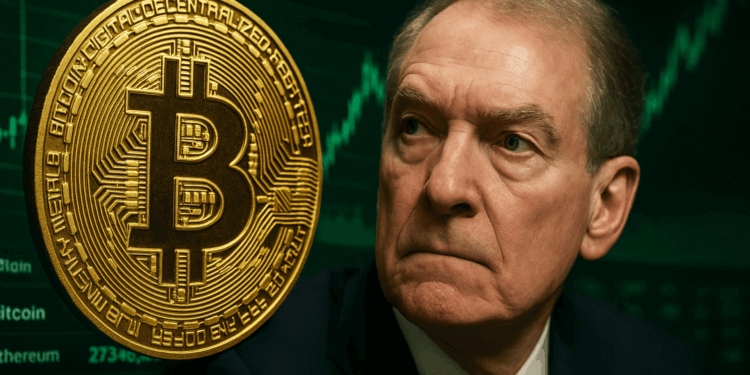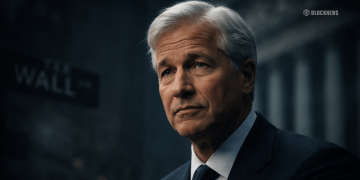- SEC Chair Paul Atkins launched Project Crypto, pledging safe harbors, exemptions, and friendlier disclosures for ICOs, airdrops, and other crypto offerings.
- Atkins said most tokens are not securities by default, rejecting the SEC’s previous enforcement-heavy approach.
- The shift aligns with the Trump administration’s crypto policy recommendations, potentially drawing firms back to the U.S. and reshaping global competition.
In a move that could reshape the U.S. crypto landscape, SEC Chair Paul Atkins declared that the agency is abandoning its old playbook of “regulation by enforcement.” Speaking at the Wyoming Blockchain Symposium, Atkins told the audience it was “a new day” for digital assets, stressing that the regulator’s goal now is to embrace innovation rather than stifle it. His remarks drew immediate attention, marking a sharp departure from the SEC’s long-standing hardline approach toward crypto firms.
Atkins went further, admitting what many in the industry have argued for years: most crypto tokens, in his view, are not securities by nature. Instead, classification will depend on how a token is packaged and presented, not on its mere existence. For developers and businesses, this shift promises a more predictable and supportive regulatory environment—something the crypto sector has been craving.
Project Crypto: Tailored Rules for a New Era
Last month, Atkins unveiled “Project Crypto,” an initiative designed to attract crypto businesses back to the United States. The project promises custom-fit disclosures, safe harbors, and exemptions for offerings like ICOs, airdrops, and network rewards—areas that have historically been plagued with lawsuits and uncertainty.
This isn’t just about easing restrictions; it’s about setting a framework that gives builders clarity without constant fear of retroactive enforcement. For an industry used to learning its fate through courtroom battles, the pivot is significant. Powerful firms and advocacy groups, including Andreessen Horowitz and the DeFi Education Fund, have already begun lobbying for carveouts under this new regime, showing just how high the stakes are.
Political Backing and Alignment with Trump’s Policy
The announcement wasn’t made in a vacuum. Project Crypto rolled out just a day after the Trump administration’s 168-page crypto policy recommendation, which urged regulators to loosen restrictions on the sector. The alignment between the SEC chair and the White House signals a coordinated strategy to position the U.S. as a leader in digital assets, reversing years of regulatory hostility.
Senator Tim Scott, who chairs the Senate Banking Committee, underscored the political momentum by hinting at a close vote on broader market structure legislation. With bipartisan cracks already showing—like the GENIUS Act’s passage earlier this year—it’s clear crypto regulation is becoming a live issue on Capitol Hill.
Why This Shift Matters
For years, crypto firms have fled to friendlier jurisdictions, citing regulatory uncertainty in the U.S. If Atkins’ promises materialize, the tide could turn, with startups and established players alike bringing innovation back onshore. Clearer rules may encourage institutional adoption, though compliance requirements will still pose challenges.
The real significance lies in credibility: the SEC, once seen as crypto’s chief adversary, is now presenting itself as a partner in innovation. Whether the industry trusts that shift—and whether future administrations maintain it—remains to be seen. But for now, Atkins’ message is unambiguous: the U.S. wants crypto here, not abroad.












